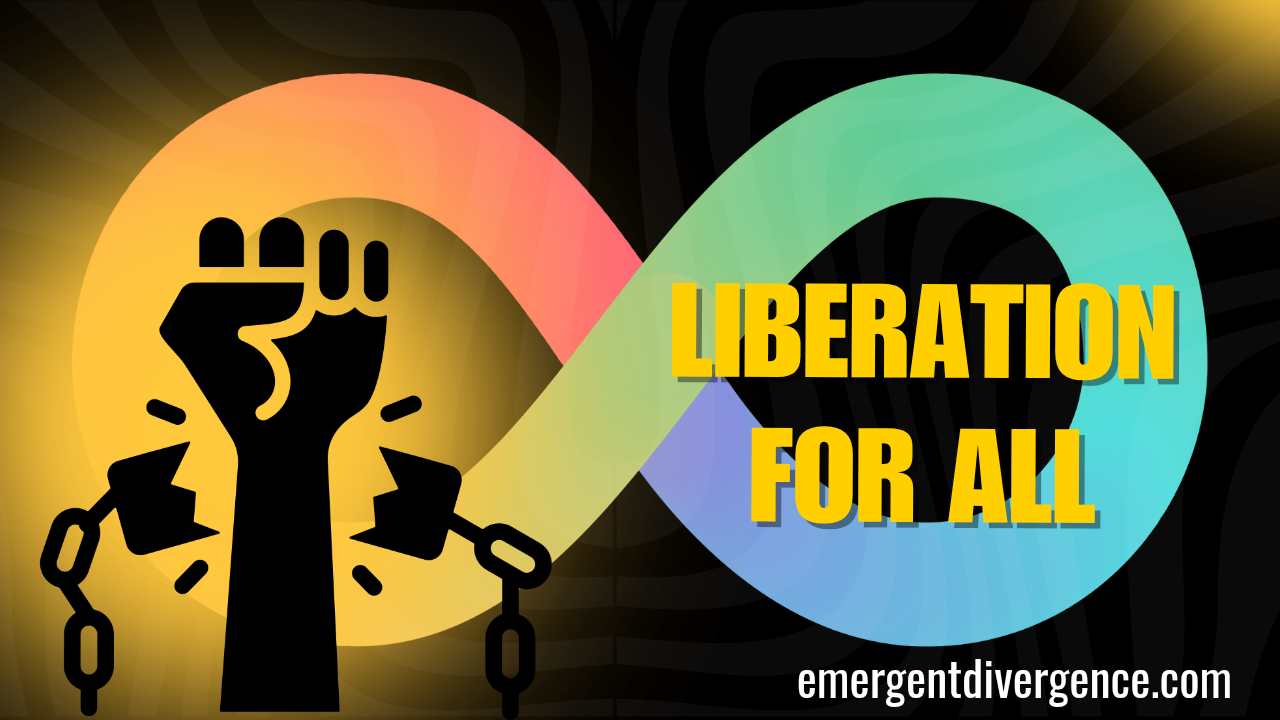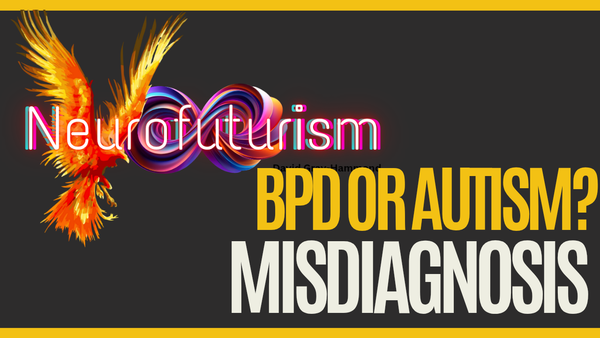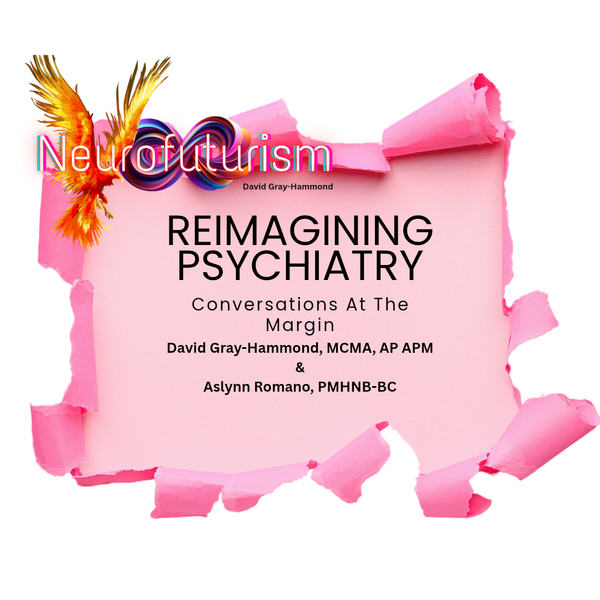Beyond Neurotyping: Towards the Liberation of Neurocognitive Identity

Neurodiversity is, at it's core, an axis of biodiversity (Chapman, 2023) . It is a paradigm built on the assumption that human bodyminds are unique and variable (Walker, 2021) while remaining responsive and adaptable to their environment. To this end, we have come to understand autism and ADHD as types of bodyminds (among countless others) that one can be born into. The issue remains, however, that seeing the human bodymind as one of discrete neurotypes undermines the neurodiversity paradigm by detracting from the truth that no two human neurologies are precisely the same.
Autism as Identity Rather Than Neurotype
Autism is itself an abstract concept that evolved from early psychological discourse grounded in the assumptions of the pathology paradigm. Try as we may to separate ourselves from the pathological origins of autism, the truth remains that our understanding of who we are as Autistic people (the only existing part of autism) is grounded in a systemic bigotry that took note of us in order to contain and exploit us, rather than empower us.
This positioning of autism as a fixed type of brain has allowed for discrimination against Autistic people by virtue of biological limitation justified via psychometric evaluation rather than shared human experience. Autistic people themselves have formed communities that seek to disempower the diagnostic establishment by highlighting the inherent privilege and systemic power imbalance within diagnostic culture.
This allows for the positioning of autism (or more specifically Autistic) as an identity rather than a medical state. Despite this, we have still viewed ourselves as Autistic through biological determinism, thereby creating the concept of 'neurotype' and the implicit reduction of the diversity we recognise in human bodyminds. If, however, we remove the deterministic (and diagnostic) nature of current Autistic experience from the equation, we empower ourselves to build identity from shared Kinship as opposed to pathologically reductive models of pre-determined states of being. In short, we choose our Autistic identity through shared humanity rather than discover it via medicalised descriptors.
Are Autistic People Autistic?
The current identity politics of Autistic spaces, which are themselves largely dominated by white western cultures, position the Autistic person who hates their autism as a victim of their own internalised ableism. This itself, in my opinion, places the locus of judgement within the person in question without acknowledging the environmental power dynamics that placed such self-contempt in said person.
If we posit that Autistic is an identity we choose for ourselves based upon shared experience and Kinship we then have to acknowledge that the environment shapes that experience and our subsequent acceptance of being Autistic as an acceptable identity. It stands to reason that for further marginalised people, the experience of being perceived as Autistic may instill discomfort within the notion of choosing Autistic as an identity. Thus, the dominant identity politics of current community discourse is a barrier to making Autistic a safe and accessible identity to have.
Further to this are those whose distance from neuronormative standards is greater than one, such as myself, who has the privilege of contributing to contemporary discourse. For those with apparent intellectual disability or differences in cognition that prevent direct communication of current understanding of the Autistic identity, the question remains, is Autistic an acceptable identity for them to choose? The current reliance on normative communication standards needs to be diminished and further investigation given as to whether or not Autistic is acceptable to all Autistic people.
Autistic people, then, are Autistic to the extent that they wish to be. It is not for us to choose an Autistic identity for others. The medical establishment at large has done such for as long as such concepts have existed. We must shift beyond diagnoses and neurotypes towards an understanding that Autistic is a neurocognitive identity. That is, we choose to be Autistic because we find kinship in the neurocognitive experiences of other Autistic people, not because a doctor (or anyone else, for that matter) told us we had to.
Rebalancing the Scales of Power Through Identity
Moving beyond the discrete categorising of bodyminds via the external observation of their proximity to neuronormativity allows for us to begin dismantling the structural boundaries that separate "neurotypical" and "neurodivergent". Walker's neurocosmopolitan society is not found in equality between Autistic and non-Autistic groups. It is found in the acceptance that in a world of eight billion people, there are eight billion types of bodyminds.
If every Self diverges from every Other, then the identities we use to stratify privileges become arbitrary and false. Identity is only as real as the people who have chosen to wear it. Therefore, for one identity group to define another in such a way as to marginalise it is for the former to have misrepresented the truth. Identity is a social construction whose validity is found within those who choose it, not in the external observations of those who choose to remain separate from it.
Circling back to the issue of further marginalisation; if identity is built by those who choose it, then to create a neurocosmopolitan society, we must make all neurocognitive identities a viable option for all people. If Autistic identity is dominated by white supremacy, then as a neurocognitive identity, it has instilled privilege by separating itself from racially and/or ethnically marginalised neurocognitive identity. Thus, the liberation of human neurocognition does not stop at the embodied mind but is instead found in total liberation of the entire bodymind. In short, Autistic liberation is not possible in full without the dismantling of all systemically synthesised privileges.
A Final Thought on The Permanence of Being Autistic
To be Autistic is currently understood as to be born with an inherently Queer mind. That is, to be Autistic is Queer by comparison to neuronormativity, such as to be Gay is Queer by comparison to heteronormativity. As Walker (2021) asserts, a Queer mind can not be unqueered. However, I would question if a Queer mind would always remain grounded in the same Queer identity. Neuroqueer theory teaches us that we can queer, or further queer, our bodyminds through intentional practice. It then stands to reason that an Autistic person can neuroqueer their bodymind to a point that they no longer find Autistic a comfortably fitting neurocognitive identity. That is to say, the Self is Chaotic and identity is the costume we are currently wearing. There is no law of nature that says we have to choose one costume and stick with it.
This presents a challenge to the Galtonian thinking of the pathology paradigm that Chapman (2023) positions as what could be seen as an intentional pruning of anything that diverges from normative value. The greatest act of resistance in the face of current normative systems is to choose our identity autonomously and not because we felt we had to. Thus, the first step towards the liberation of the Autistic neurocogntive identity is to accept that we can choose for ourselves if Autistic is a good fit for us; safe in the knowledge that nothing has to be permanent.
References
Chapman, R. (2023). Empire of Normality: Neurodiversity and Capitalism. Pluto Press
Walker, N. (2021) Neuroqueer Heresies: Notes on the neurodiversity paradigm, Autistic liberation, and post-normal possibilities. Autonomous Press


